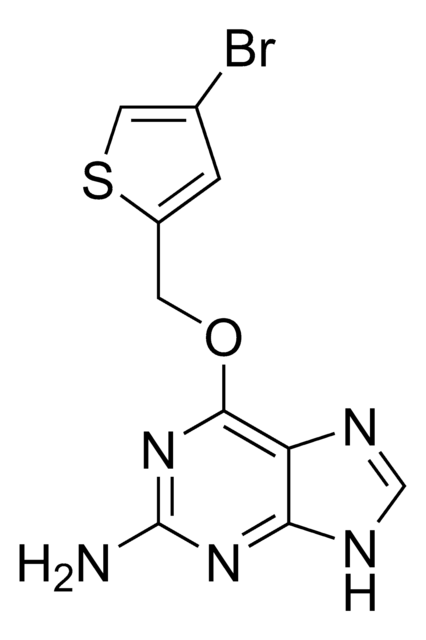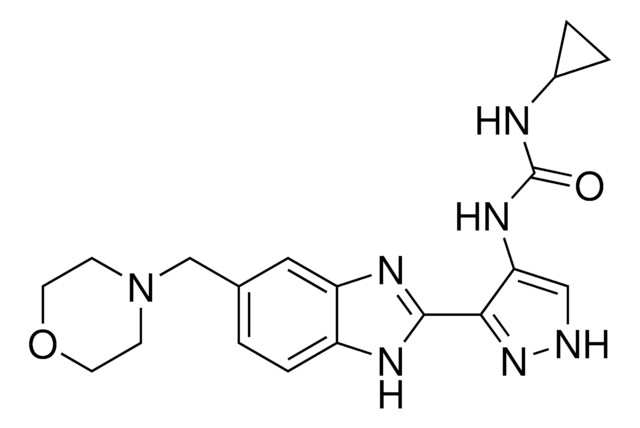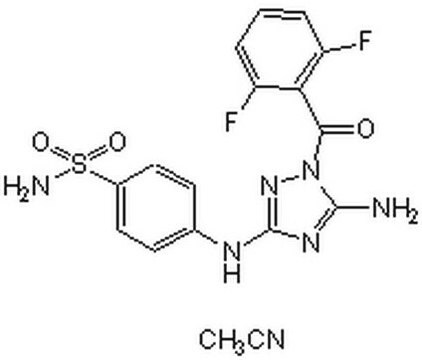SML1143
PTC-209
≥98% (HPLC)
Synonyme(s) :
N-(2,6-Dibromo-4-methoxyphenyl)-4-(2-methylimidazo[1,2-a]pyrimidin-3-yl)-2-thiazolamine
About This Item
Produits recommandés
Pureté
≥98% (HPLC)
Forme
powder
Couleur
white to brown
Solubilité
DMSO: 20 mg/mL, clear
Température de stockage
2-8°C
Chaîne SMILES
BrC1=CC(OC)=CC(Br)=C1NC2=NC(C3=C(C)N=C4N3C=CC=N4)=CS2
InChI
1S/C17H13Br2N5OS/c1-9-15(24-5-3-4-20-16(24)21-9)13-8-26-17(22-13)23-14-11(18)6-10(25-2)7-12(14)19/h3-8H,1-2H3,(H,22,23)
Clé InChI
XVOOCQSWCCRVDY-UHFFFAOYSA-N
Application
- the cell viability of canine osteosarcoma (OSA) cell lines
- lipidated microtubule-associated protein 1 light chain 3 (LC3B-II) and Sequestosome 1 (SQSTM1) protein levels in ovarian cancer (OvCa) cells
- cardiac reprogramming efficiency in mouse embryonic fibroblasts (MEF)
Actions biochimiques/physiologiques
Caractéristiques et avantages
Code de la classe de stockage
11 - Combustible Solids
Classe de danger pour l'eau (WGK)
WGK 3
Point d'éclair (°F)
Not applicable
Point d'éclair (°C)
Not applicable
Certificats d'analyse (COA)
Recherchez un Certificats d'analyse (COA) en saisissant le numéro de lot du produit. Les numéros de lot figurent sur l'étiquette du produit après les mots "Lot" ou "Batch".
Déjà en possession de ce produit ?
Retrouvez la documentation relative aux produits que vous avez récemment achetés dans la Bibliothèque de documents.
Articles
We offer a variety of small molecule research tools, such as transcription factor modulators, inhibitors of chromatin modifying enzymes, and agonists/antagonists for target identification and validation in gene regulation research; a selection of these research tools is shown below.
Notre équipe de scientifiques dispose d'une expérience dans tous les secteurs de la recherche, notamment en sciences de la vie, science des matériaux, synthèse chimique, chromatographie, analyse et dans de nombreux autres domaines..
Contacter notre Service technique







